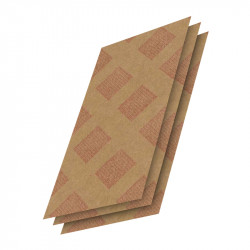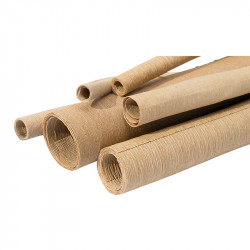-
BackX
-
Components
-
-
Category
-
Semiconductors
- Diodes
- Thyristors
-
Electro-insulated Modules
- Electro-insulated Modules | VISHAY (IR)
- Electro-insulated Modules | INFINEON (EUPEC)
- Electro-insulated Modules | Semikron
- Electro-insulated Modules | POWEREX
- Electro-insulated Modules | IXYS
- Electro-insulated Modules | POSEICO
- Electro-insulated Modules | ABB
- Electro-insulated Modules | TECHSEM
- Go to the subcategory
- Bridge Rectifiers
-
Transistors
- Transistors | GeneSiC
- SiC MOSFET Modules | Mitsubishi
- SiC MOSFET Modules | STARPOWER
- Module SiC MOSFET ABB’s
- IGBT Modules | MITSUBISHI
- Transistor Modules | MITSUBISHI
- MOSFET Modules | MITSUBISHI
- Transistor Modules | ABB
- IGBT Modules | POWEREX
- IGBT Modules | INFINEON (EUPEC)
- Silicon Carbide (SiC) semiconductor elements
- Go to the subcategory
- Gate Drivers
- Power Blocks
- Go to the subcategory
- Electrical Transducers
-
Passive components (capacitors, resistors, fuses, filters)
- Resistors
-
Fuses
- Miniature Fuses for electronic circuits - ABC & AGC Series
- Tubular Fast-acting Fuses
- Time-delay Fuse Links with GL/GG & AM characteristics
- Ultrafast Fuse Links
- Fast-acting Fuses (British & American standard)
- Fast-acting Fuses (European standard)
- Traction Fuses
- High-voltage Fuse Links
- Go to the subcategory
- Capacitors
- EMI Filters
- Supercapacitors
- Power surge protection
- Go to the subcategory
-
Relays and Contactors
- Relays and Contactors - Theory
- 3-Phase AC Semiconductor Relays
- DC Semiconductor Relays
- Controllers, Control Systems and Accessories
- Soft Starters and Reversible Relays
- Electromechanical Relays
- Contactors
- Rotary Switches
-
Single-Phase AC Semiconductor Relays
- AC ONE PHASE RELAYS 1 series| D2425 | D2450
- One phase semiconductor AC relays CWA and CWD series
- One phase semiconductor AC relays CMRA and CMRD series
- One phase semiconductor AC relays - PS series
- Double and quadruple semiconductor AC relays - D24 D, TD24 Q, H12D48 D series
- One phase semiconductor relays - gn series
- Ckr series single phase solid state relays
- One phase AC semiconductor relays for DIN bus - ERDA I ERAA series
- 150A AC single phase relays
- Rail Mountable Solid State Relays With Integrated Heat Sink - ENDA, ERDA1 / ERAA1 series
- Go to the subcategory
- Single-Phase AC Semiconductor Relays for PCBs
- Interface Relays
- Go to the subcategory
- Cores and Other Inductive Components
- Heatsinks, Varistors, Thermal Protection
- Fans
- Air Conditioning, Accessories for Electrical Cabinets, Coolers
-
Batteries, Chargers, Buffer Power Supplies and Inverters
- Batteries, Chargers - Theoretical Description
- Modular Li-ion Battery Building Blocks, Custom Batteries, BMS
- Batteries
- Battery Chargers and Accessories
- Uninterruptible Power Supply and Buffer Power Supplies
- Inverters and Photovoltaic Equipments
- Energy storage
- Fuel cells
- Lithium-ion batteries
- Go to the subcategory
-
Automatics
- Futaba Drone Parts
- Limit Switches, Microswitches
- Sensors, Transducers
-
Infrared Thermometers (Pyrometers)
- IR-TE Series - Water-proof Palm-sized Radiation Thermometer
- IR-TA Series - Handheld Type Radiation Thermometer
- IR-H Series - Handheld Type Radiation Thermometer
- IR-BA Series - High-speed Compact Radiation Thermometer
- IR-FA Series - Fiber Optic Radiation Thermometer
- IR-BZ Series - Compact Infrared Thermometers
- Go to the subcategory
- Counters, Time Relays, Panel Meters
- Industrial Protection Devices
- Light and Sound Signalling
- Thermographic Camera
- LED Displays
- Control Equipments
-
Recorders
- Hybrid Recorders - AL3000 Series | CHINO
- Graphic Recorder - KR2000 Series | CHINO
- Ubiquitous Recorders - KR5000 Series | CHINO
- Palm-sized Temperature/Humidity Meters - HN-CH Series | CHINO
- Consumables for Recorders
- 71VR1 - Compact Paperless Recorder | M-SYSTEM
- Graphic Recorder - KR3000 Series | CHINO
- PC Recorders - R1M Series | M-SYSTEM
- PC Recorders - R2M Series | M-SYSTEM
- PC Recorders - RZMS Series | M-SYSTEM
- PC Recorders - RZUS Series | M-SYSTEM
- Go to the subcategory
- Go to the subcategory
-
Cables, Litz wires, Conduits, Flexible connections
- Wires
- Litz wires
- Cables for extreme applications
- Sleevings
-
Braids
- Flat Braids
- Round Braids
- Very Flexible Flat Braids
- Very Flexible Round Braids
- Cylindrical Cooper Braids
- Cylindrical Cooper Braids and Sleevings
- Flexible Earthing Connections
- Galvanized and Stainless Steel Cylindrical Braids
- PCV Insulated Copper Braids (temp. up to 85C)
- Flat Aluminium Braids
- Junction Set - Braids and Tubes
- Go to the subcategory
- Traction Equipment
- Cable Terminals
- Flexible Insulated Busbars
- Flexible Multilayer Busbars
- Cable Duct Systems
- Hoses
- Go to the subcategory
- View all categories
-
Semiconductors
-
-
- Suppliers
-
Applications
- CNC Machine Tools
- DC and AC Drives (Inverters)
- Energetics
- Energy bank
- Equipment and Components for Hazardous Areas [Ex]
- Equipment for Distribution, Control and Telecommunications Cabinets
- HVAC Automation
- Induction Heating
- Industrial Automation
- Industrial Protective Devices
- Machines for Drying and Wood Processing
- Machines for Thermoforming Plastics
- Mining, Metallurgy and Foundry
- Motors and Transformers
- Power Supplies (UPS) and Rectifier Systems
- Printing
- Temperature Measurement and Regulation
- Test and Laboratory Measurements
- Tram and Railway Traction
- Welding Machines
-
Assembly
-
-
Inductors
-
-
Induction devices
-
-
https://www.dacpol.eu/pl/naprawy-i-modernizacje
-
-
Service
-
- Contact
- Zobacz wszystkie kategorie
Insulating materials for oil transformers
Dacpol Company offers an extensive range of flexible insulating materials, which are manufactured in B 130oC to H 180oC temperature classes. These materials are characterized by good dielectric properties and are delivered in rolls or sheets. There is also a...
Dacpol Company offers an extensive range of flexible insulating materials, which are...
Categories
| Image | View the product | No. Manufacturer | ||||
|---|---|---|---|---|---|---|
| -- |

|
-- | Transformer paper | SEE IT | -- | On Order |
| -- |

|
-- | Paper tubes | SEE IT | -- | On Order |
Dacpol Company offers an extensive range of flexible insulating materials, which are manufactured in B 130oC to H 180oC temperature classes. These materials are characterized by good dielectric properties and are delivered in rolls or sheets. There is also a possibility to cut them or to deliver the finished slot insulation. Main usage fields are transformers and electric engines.
Insulating materials can be also delivered in the form of tapes. Such electro insulating tapes, which are used for production of electric and electronic components, should have the right electric and mechanical properties, and correspond to the required technical characteristics. Behind the simple reel of the adhesive tape there are complex material science problems, technologies and production processes.
Electro insulating adhesive tapes are used for:
- insulation,
- protection,
- labeling,
- mounting.
Insulation properties of the tape are determined by the type and thickness of the tape warp, insulation resistance, electrical durability of the warp’s dielectric, and the tape’s resilience to aging. One of the important indicators in the choice of the insulating tape is the consideration of the occurrence of electrolytic corrosion of the conduit in response to the chemical reaction with the tape’s components in the presence of electric potential, humidity and other environmental factors. Electrolytic corrosion can lead to breaching of the conduit or to puncturing of the enameled insulation of the thin wires e.g. in the reel of the transformer’s coil. To decrease the possibility of corrosion, the level of sulfur and hydrogens in the tape’s material should be lowered.
The protection of the products from various types of the damages is guaranteed by several of the tape’s parameters, such as insulation resistance, immunity to solvents, work temperature range, inflammability, and the resilience to ripping.
Many producers use the tapes for colorful labeling of their products and as an indication material. In this situation it is important for the tape not to fade, maintain good adhesive properties and usefulness for the labelling purposes. Lastly, the tapes are used for components and cable mounting. In this case, the most often considered parameters are: resilience to ripping/extending and their adhesive properties.
We offer impregnating paint in B 130, F 155 and H 180oC classes. We deliver them in the 1L, 5L, 20L containers and 200L barrels.
Main application of the paints is impregnation of the engine and transformer reels, conducted through: immersion, submerging, vacuum method, and droplet method.
We also offer polyurethane and epoxy resins. Our resins are bi-component. The polymerization of the resins can happen in the temperature of the environment or in a dryer in the increased temperature.
We deliver resins in 1L, 5L, 20L packages and 200L barrels. Main applications are the flooding of the electronic cables, electronic components and transformers.



